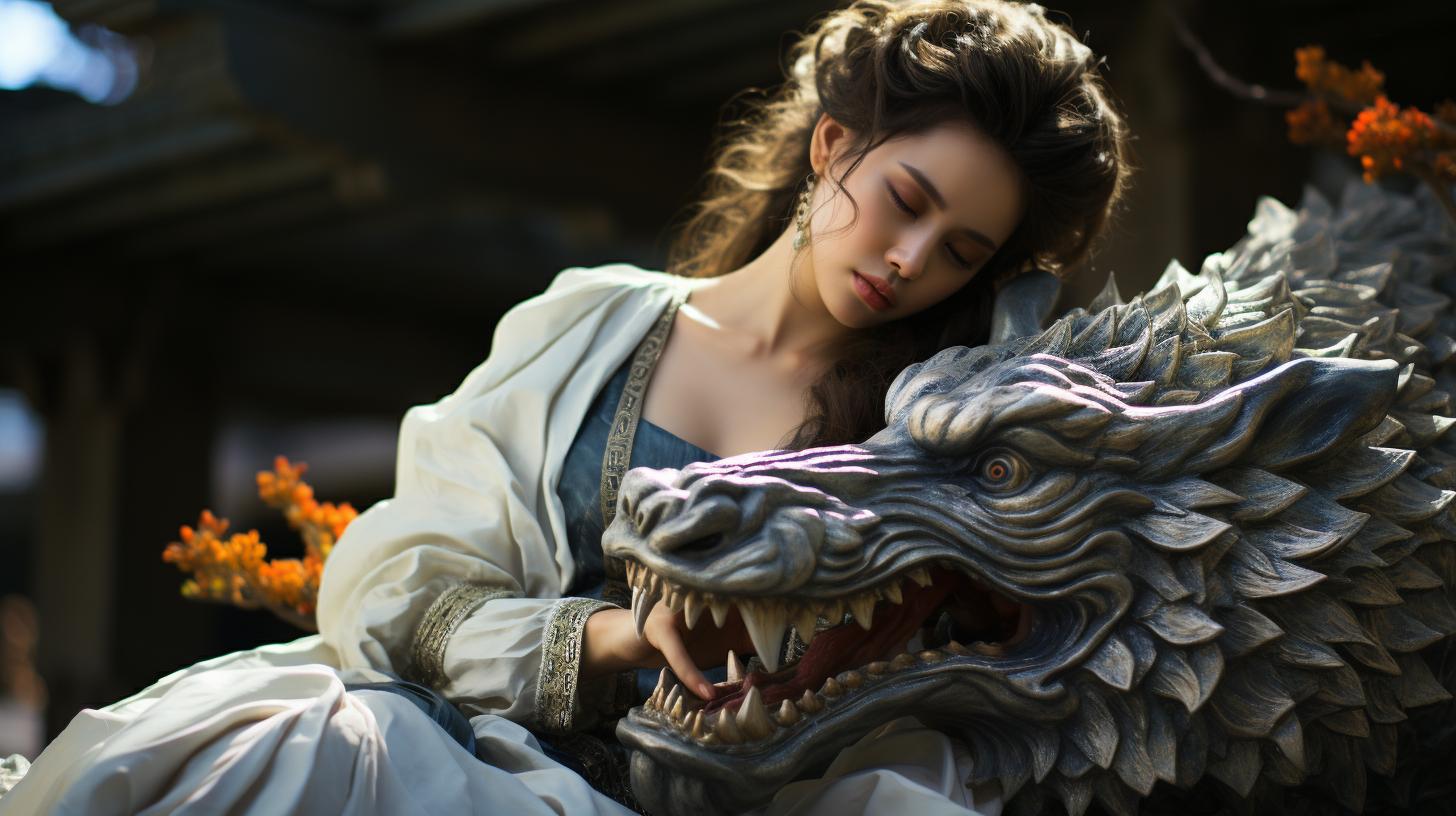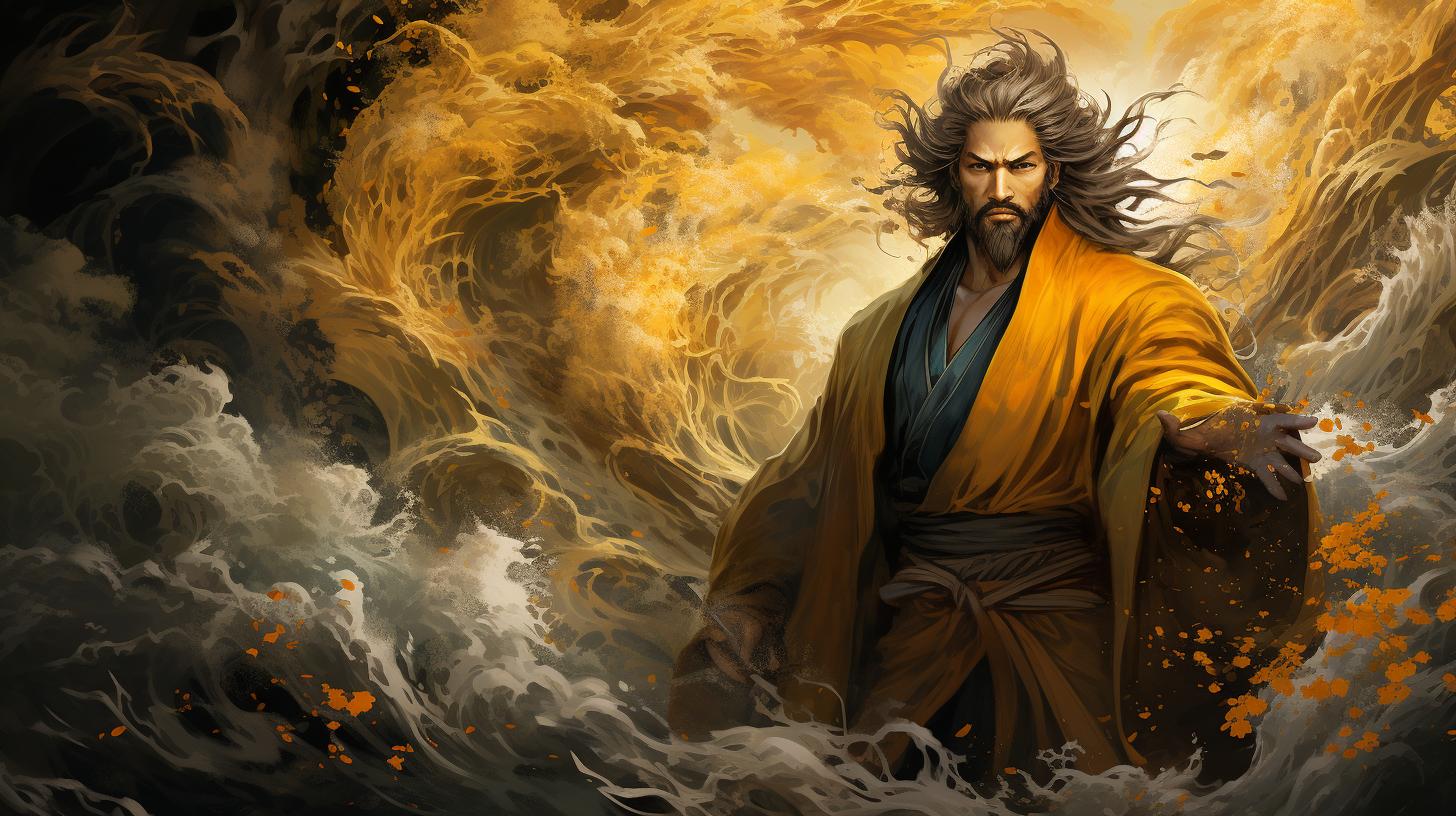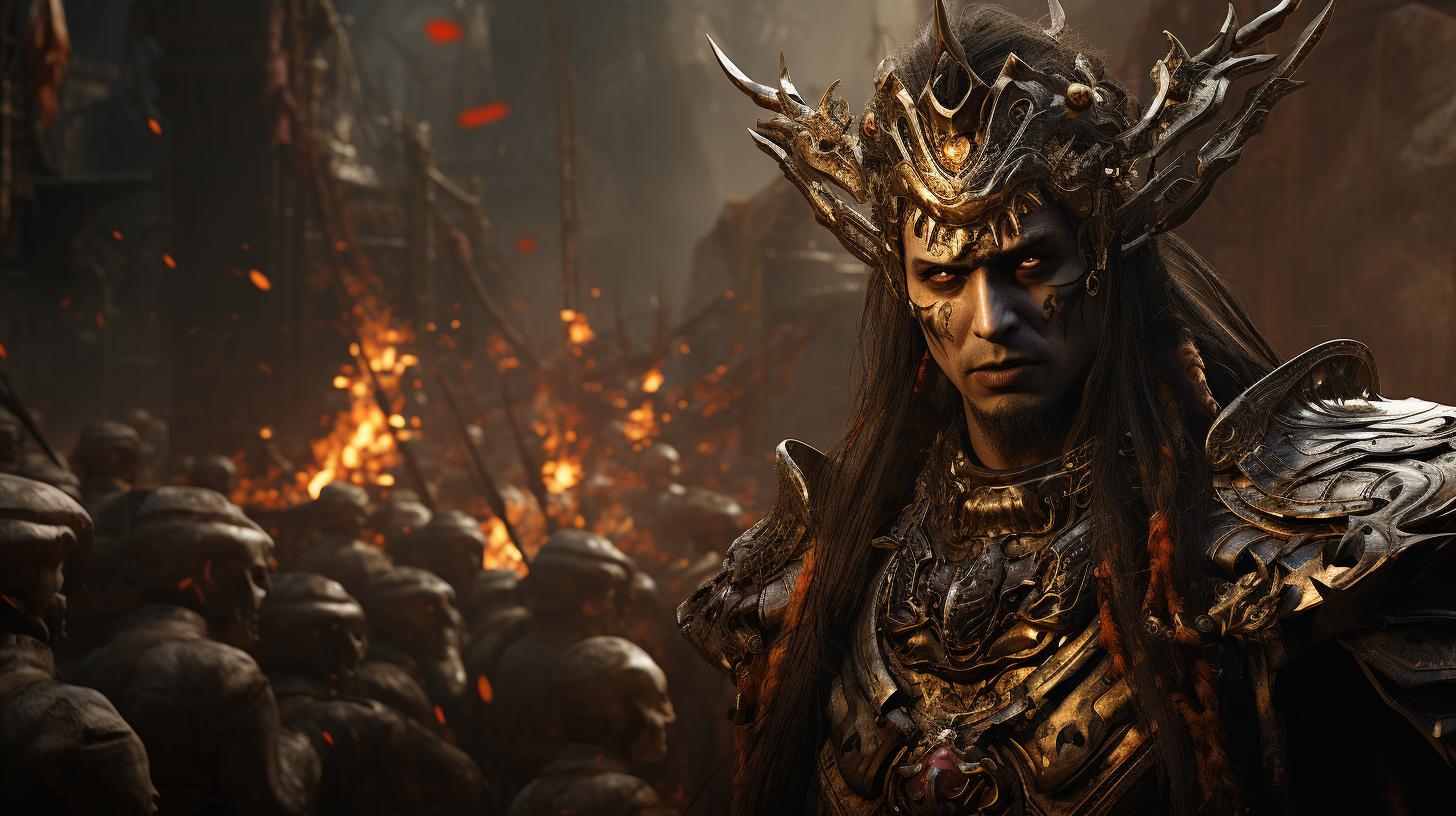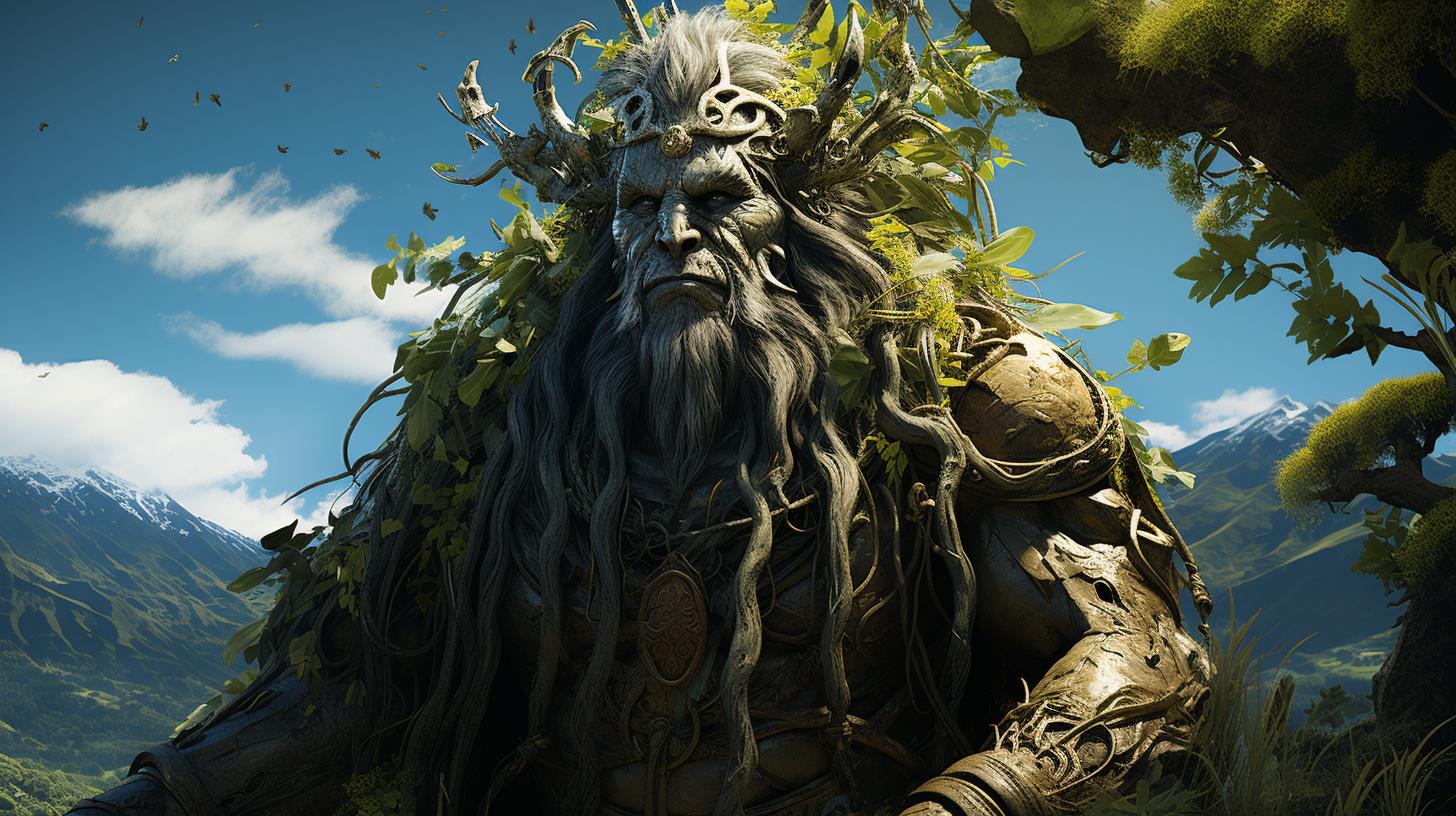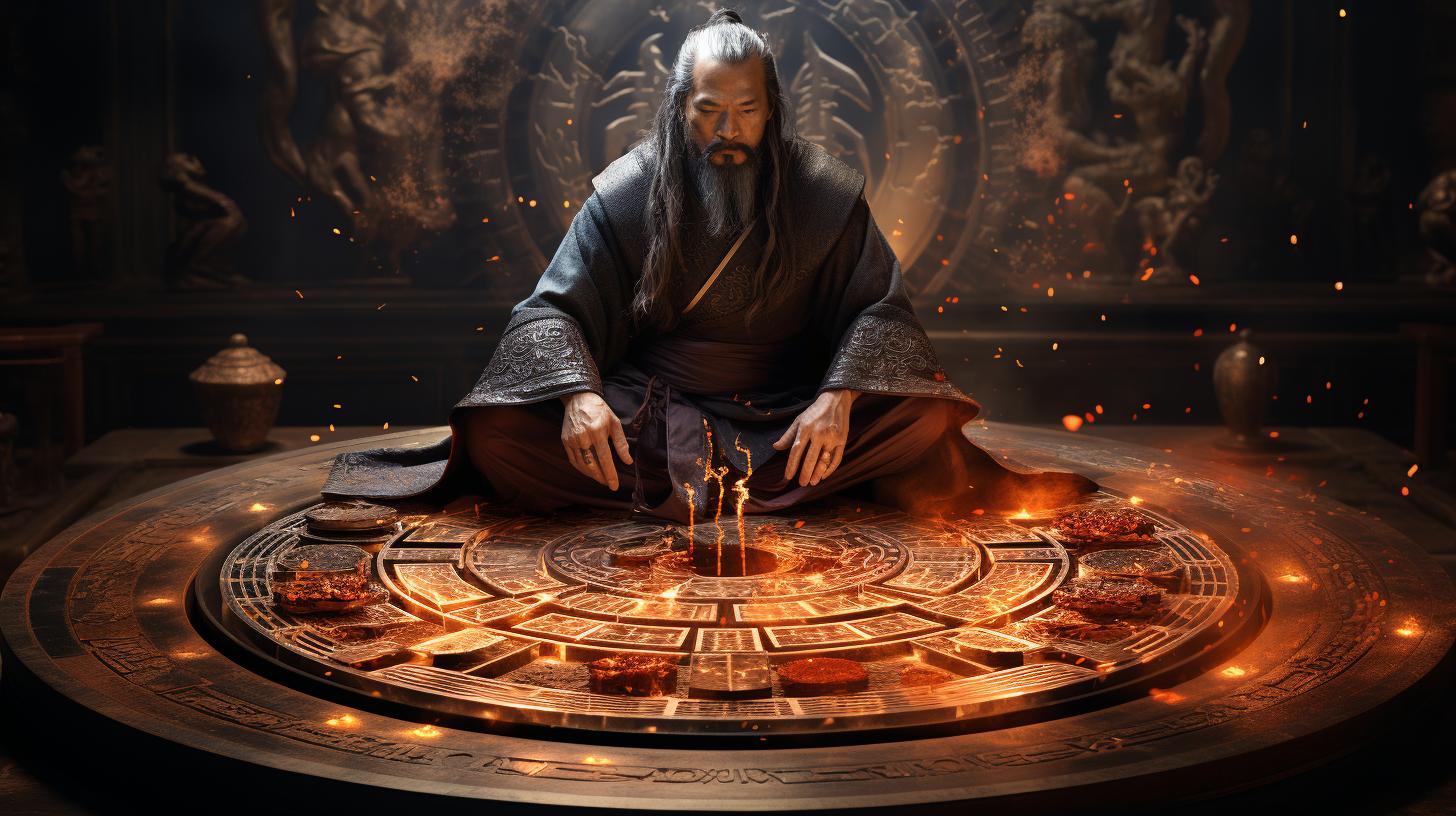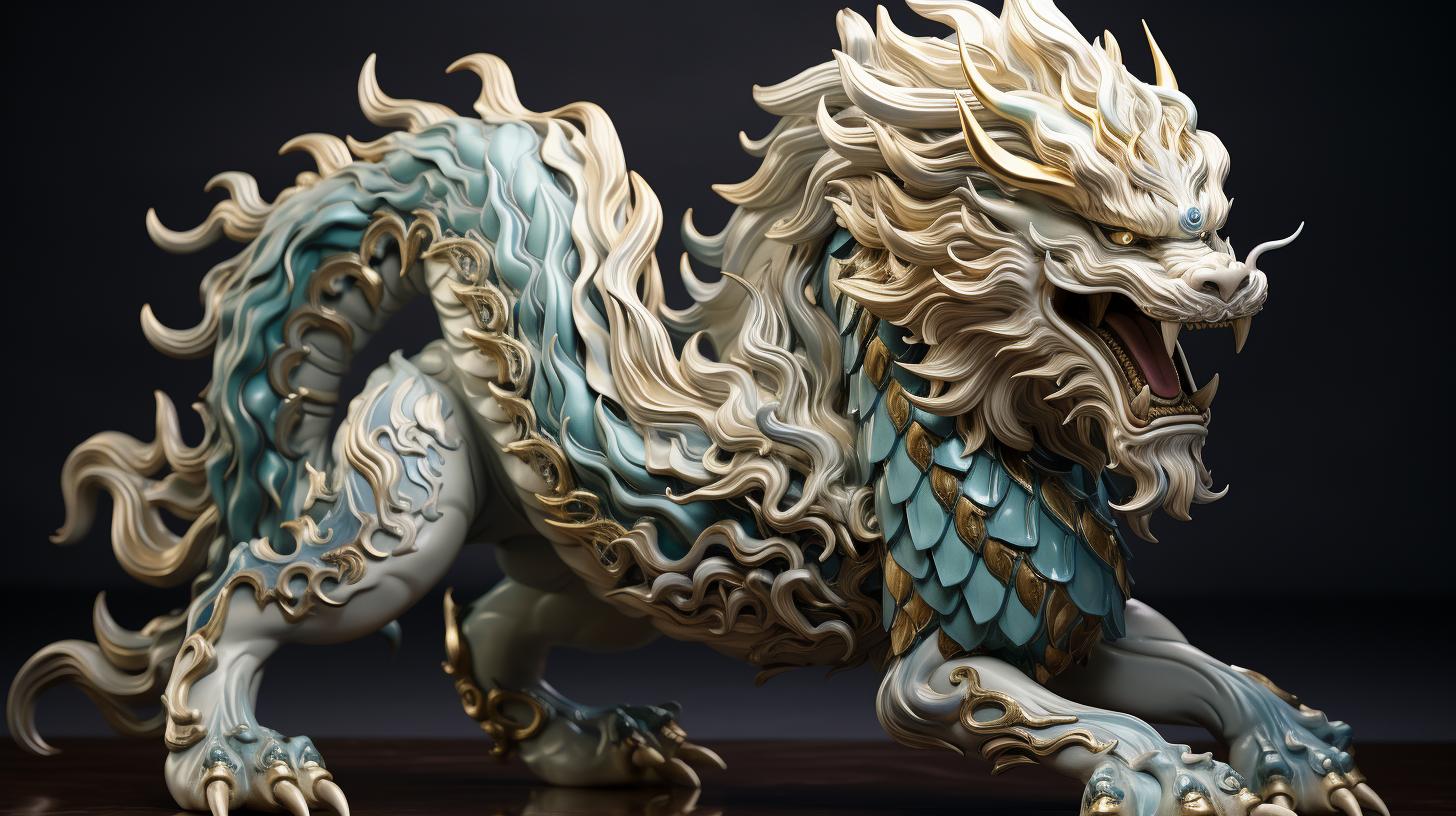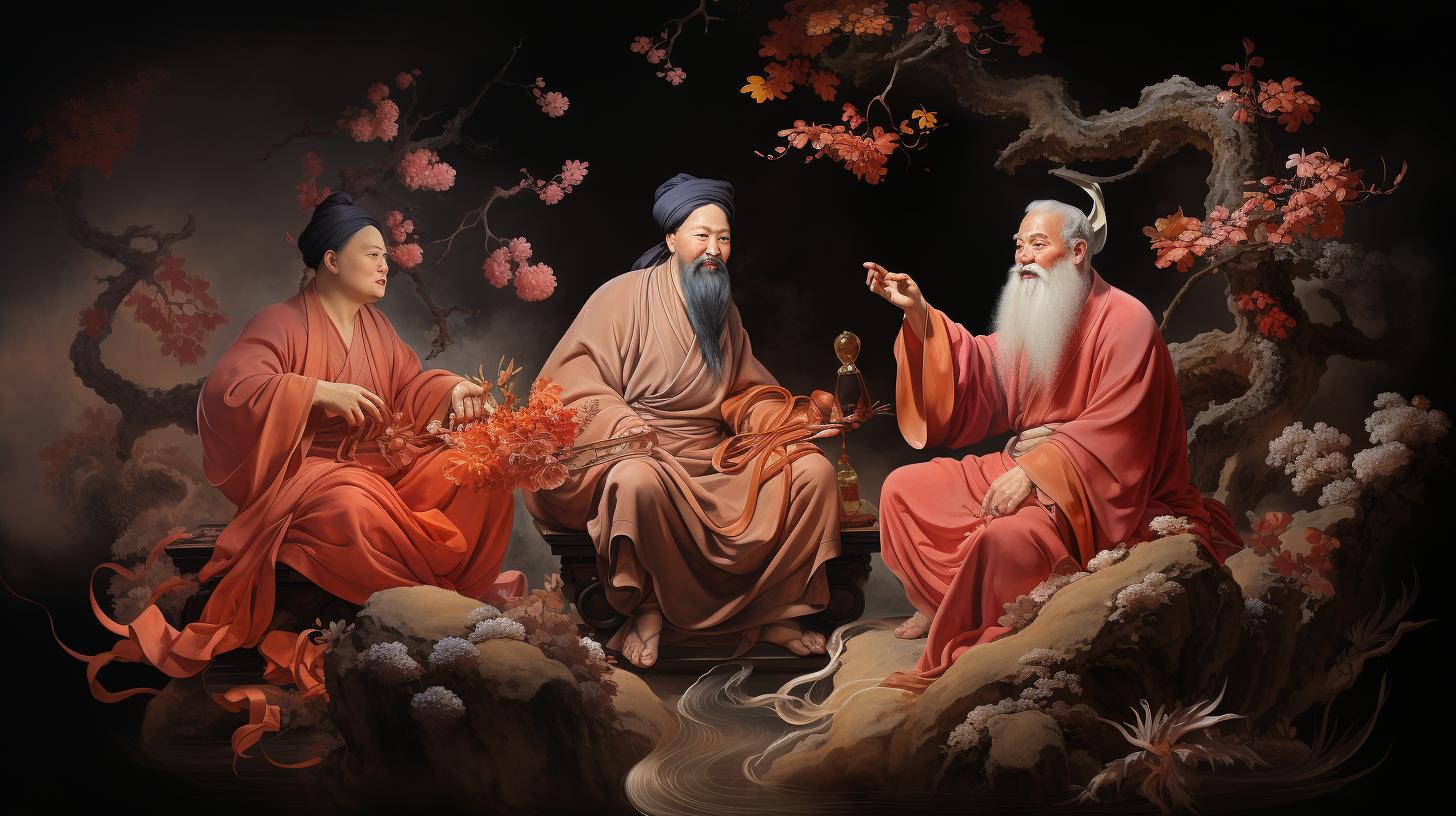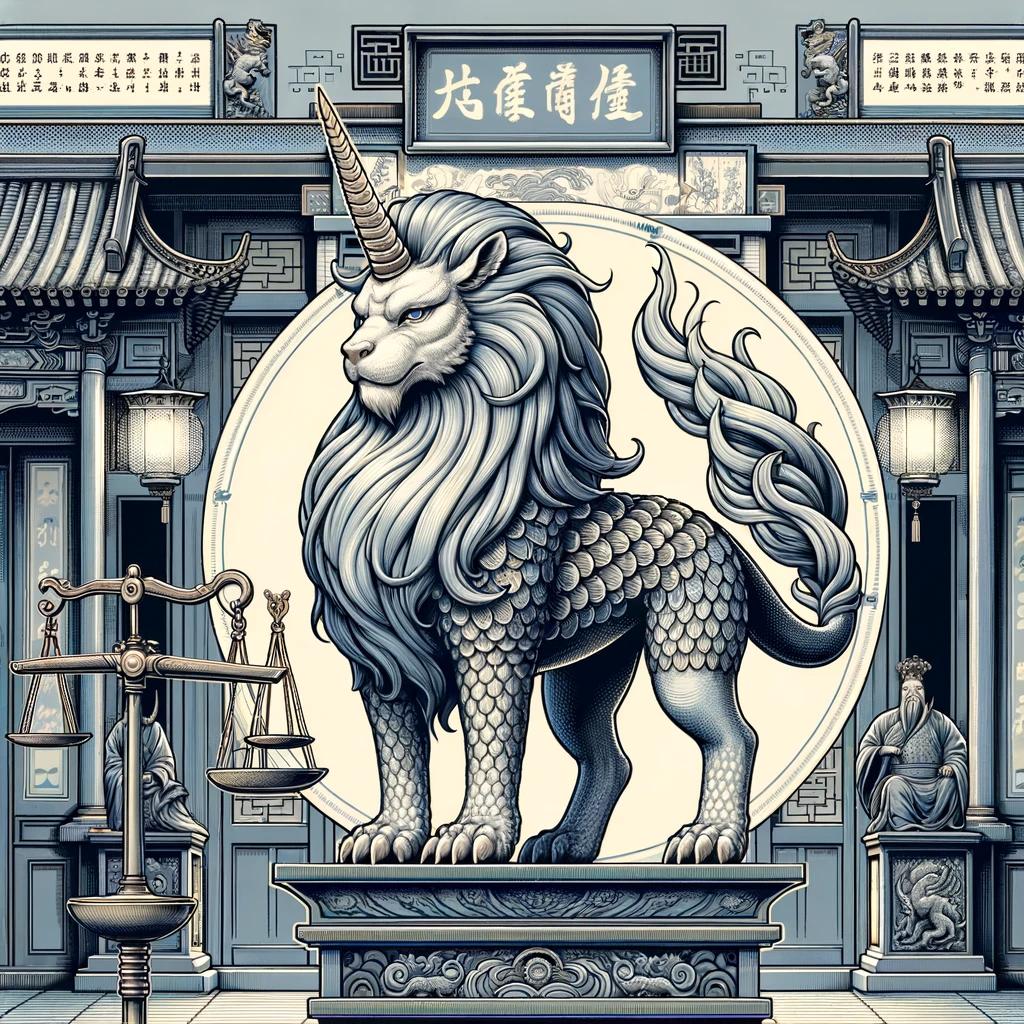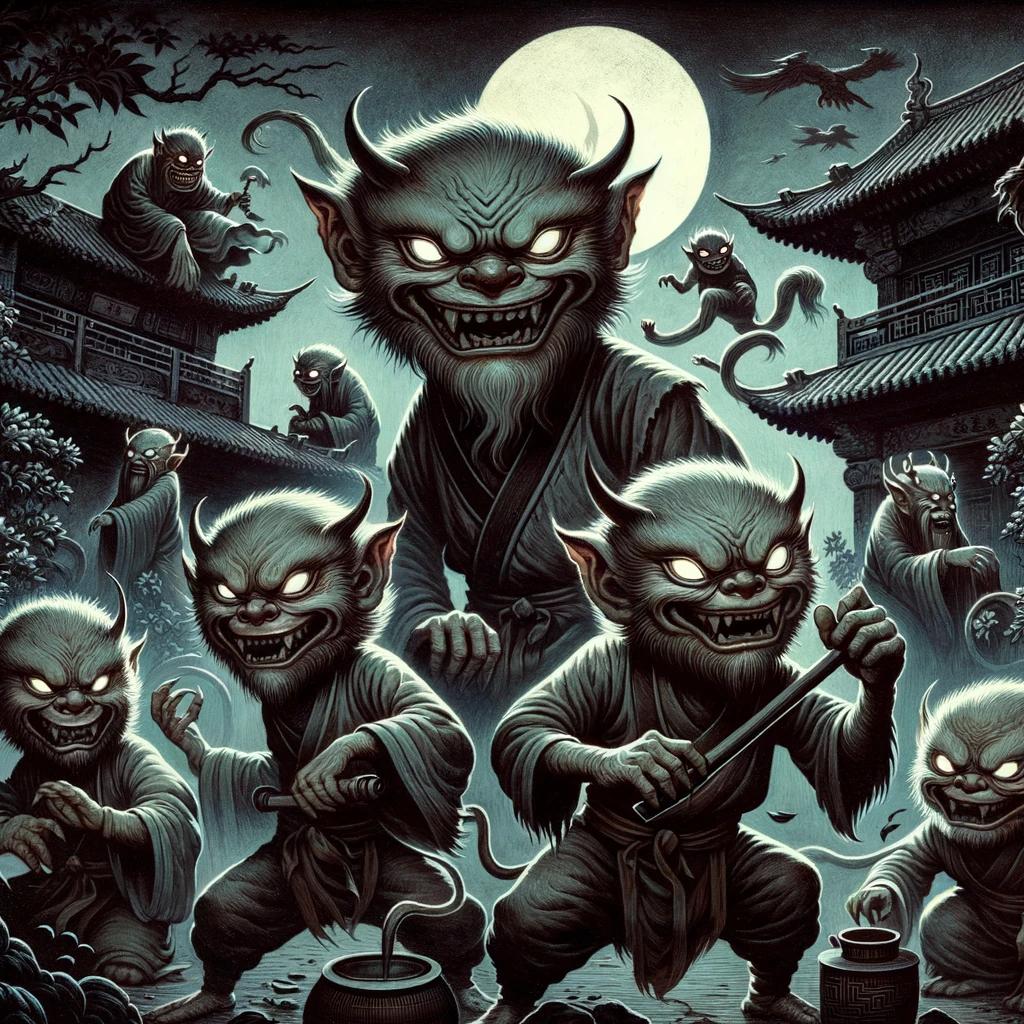Longmu Goddess: The Mythical Mother of Dragons Unveiled
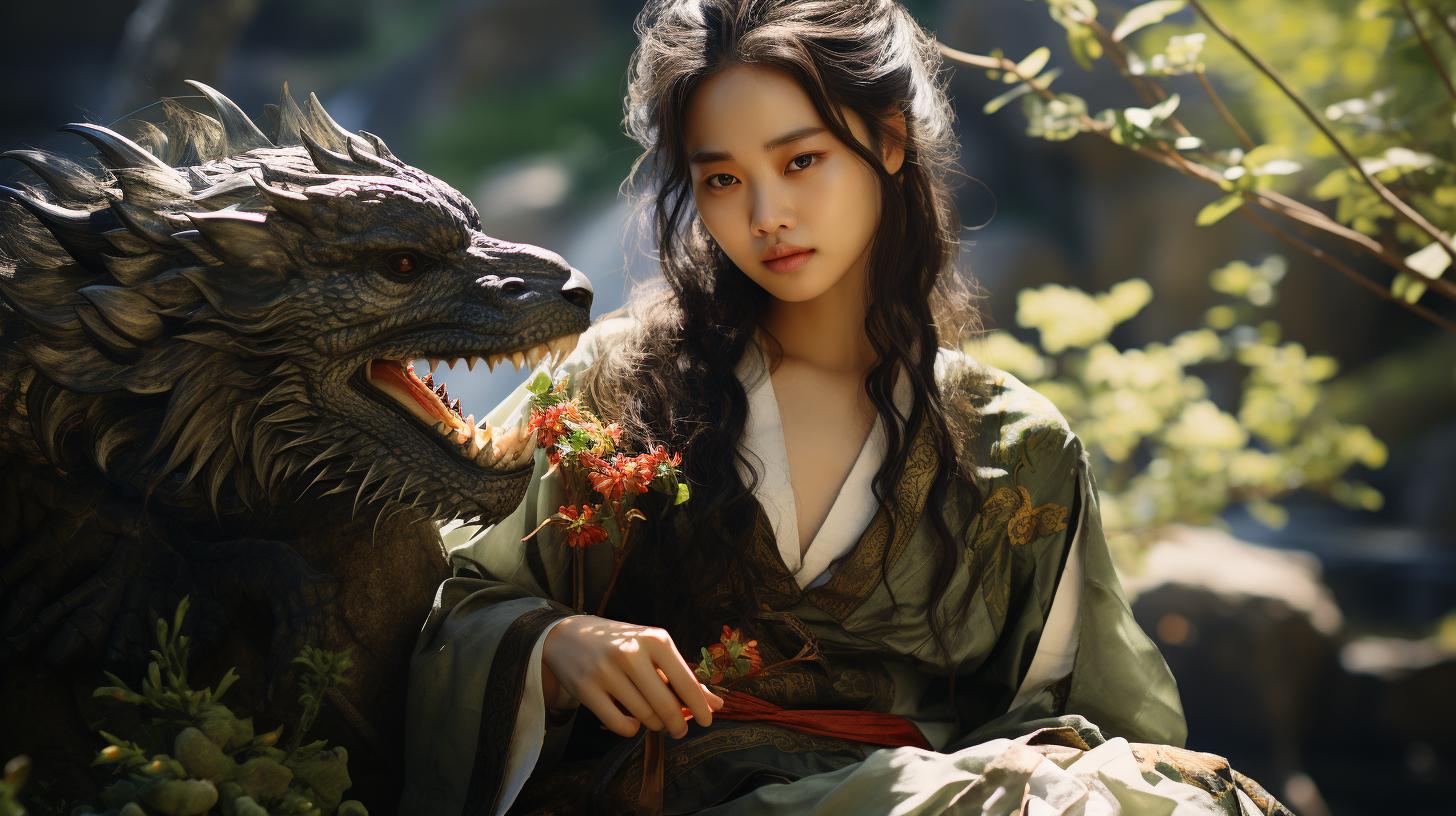
Longmu goddess, also known as the ‘Mother of Dragons,’ is a Chinese deity deeply rooted in mythology. As the legend goes, Longmu, originally named Wen Shi, nurtured and formed a strong bond with five baby dragons.
These dragons later became powerful water guardians and aided Longmu in her fishing endeavors. Renowned for her filial devotion and parental love, Longmu earned the titles of ‘Divine Human’ and ‘Mother of Dragons,’ and temples dedicated to her were erected in her honor across Guangdong province, including Hong Kong’s Lung Mo Temples.
Discover the captivating story and cultural significance of Longmu in Chinese mythology.
The Legend of Longmu Goddess
Longmu goddess, also known as the ‘Mother of Dragons,’ is a prominent figure in Chinese mythology. Her legend is filled with captivating tales of bravery, devotion, and divine connections.
According to ancient stories, Longmu, originally known as Wen Shi, was a Chinese woman who raised and nurtured five dragon hatchlings.
Over time, she formed an unbreakable bond with these magnificent creatures, which eventually grew to become powerful guardians of water.
Longmu’s unwavering love and filial devotion towards her dragon companions led to her being revered as a deity.
She became known as the ‘Humano Divino’ or ‘Mother of Dragons,’ embodying the essence of compassion, strength, and maternal protection.
In times of drought, Longmu called upon her dragon allies to summon rain, and their success further solidified her status as a revered figure of worship.
The dragons’ ability to answer her pleas for rain showcased the supernatural connection and unique power dynamics between Longmu and her dragon offspring.
The tale of Longmu’s legendary journey extends beyond her interactions with the dragons.
From her encounter with Emperor Qin Shihuang to the emotional reactions of the dragons after her passing, the legend of Longmu continues to captivate and inspire.
The Origin and Background of Longmu
In the realm of Chinese mythology, Longmu, also referred to as the ‘Mother of Dragons,’ emerges as a fascinating deity with a captivating origin.
According to ancient tales, Longmu was not a divine figure from the beginning; rather, she was a Chinese woman named Wen Shi. The exact details of her background remain veiled in mystery, adding an air of intrigue to her story.
It was through a remarkable encounter that Wen Shi’s life intertwines with that of the dragons. As the legend goes, Wen Shi discovered five dragon hatchlings abandoned and vulnerable. Driven by compassion, she took them under her care, becoming their guardian and protector.
This act of love and devotion laid the foundation for her divine status and the admiration she would garner later on.
Over time, these dragon hatchlings grew into powerful beings, assuming the roles of formidable water guardians.
Longmu’s unique bond with the dragons is a testament to her nurturing nature and ability to command their loyalty. Together, they thrived in their interconnectedness, forging an unbreakable bond that would come to define Longmu and her place in Chinese folklore.
As the story goes, Longmu’s tale extends beyond her initial encounter with the dragons. Her significance is further accentuated by her pivotal role in bringing rain to a drought-stricken land, displaying her unwavering dedication to her people.
This remarkable feat solidified her status as a revered figure, known as the ‘Humano Divino’ or the cherished ‘Mother of Dragons,’ revered for her filial piety and parental love.
Longmu’s Relationship with the Dragons
Longmu, also known as the ‘Mother of Dragons,’ had a profound connection with these mystical creatures.
As a Chinese woman named Wen Shi, she selflessly raised and cared for five baby dragons, forging a deep bond between them. These dragons, under Longmu’s guidance, grew to become powerful guardians of the water, protecting her during her fishing expeditions on the Xi River.
Longmu’s relationship with the dragons was founded on love and mutual respect. The dragons revered her as their mother figure, instilling within them a sense of loyalty and devotion. Together, Longmu and her dragon companions formed an inseparable team, united in their shared purpose.
It is through this extraordinary relationship that Longmu gained the ability to communicate with the dragons, understanding their needs and desires. This unique connection allowed them to foster an unbreakable alliance, enabling them to overcome various challenges and fulfill their respective roles.
The dragons’ unwavering commitment to Longmu is a testament to the strength of their bond. From the moment they hatched, they recognized her as their guiding force and protector. Longmu, in turn, treasured the dragons as her precious companions, acknowledging their immense power and the assistance they provided in times of need.
Longmu’s relationship with the dragons stands as a testament to the power of love and the extraordinary connections that can form between humans and mythical creatures. It is a bond that transcends boundaries and echoes throughout the ages, showcasing the incredible intertwining of mortal and mystical realms.
The Dragons’ Transformation and Devotion
As the dragons raised by Longmu grew in size and strength, their transformation was truly awe-inspiring. From vulnerable infants, they became powerful and majestic beings, taking on the role of guardians of the water.
Longmu’s love and care molded them into extraordinary creatures, capable of great feats and influence.
The dragons’ devotion to Longmu was unmatched, reflecting the strong bond they shared. They became her constant companions and allies, assisting her in her fishing endeavors in the Xi River.
Longmu’s connection with the dragons was not merely one of ownership, but of mutual respect and protection.
Their unwavering loyalty was not limited to the river, as the dragons showed their dedication in extraordinary ways. When Longmu, the beloved guardian, was invited to the capital by Emperor Qin Shihuang, the dragons’ emotions took over.
They could not bear to be separated from the woman who had raised and cherished them. Their sorrow was palpable, and they took human form to mourn her loss and bury her in the sacred Mount Zhu.
The dragons’ transformation and unwavering devotion to Longmu is a testament to the profound connection between human and mythical beings in Chinese mythology. Their loyalty and sacrifice speak to the deep sense of filial piety and love ingrained in the culture, leaving a lasting legacy for countless generations to come.
Longmu’s Influence and Veneration
Longmu, the revered deity also known as the ‘Mother of Dragons,’ holds a significant influence in Chinese mythology and cultural traditions. Her unwavering devotion to her dragon companions and her role as a guardian of water bestowed her with immense respect and admiration.
The worship and veneration of Longmu extends beyond her role as a divine figure. She embodies virtues such as filial piety and maternal love, which hold a central place in Chinese society.
Longmu serves as a powerful symbol of familial bonds and the nurturing nature of women.
- Longmu’s temples, such as the Ancestral Temple of Longmu in Yuecheng and the Baisha Temple in Zhaoqing, stand as testament to her enduring legacy.
These sacred places attract devotees who seek her blessings and offer prayers for protection and prosperity.
- The temples, meticulously designed and adorned with intricate artwork, serve as gathering points for rituals, festivals, and traditional ceremonies honoring Longmu.
Through songs, dances, and offerings, worshippers express their reverence and seek spiritual connections with the revered goddess.
- Longmu’s influence extends beyond her presence in physical temples. Stories and myths about her continue to be passed down through generations, shaping the cultural narrative and inspiring awe and fascination among the Chinese population.
Longmu’s revered status as the ‘Mother of Dragons’ and her embodiment of values deeply rooted in Chinese culture ensure that her influence and veneration endure for generations to come.
The Invitation from Emperor Qin Shihuang
As the legend of Longmu goddess spread far and wide, her fame reached the ears of Emperor Qin Shihuang, the renowned ruler of ancient China. Intrigued by her mystical connection with the dragons, Qin Shihuang extended a formal invitation to Longmu, inviting her to the imperial capital.
However, to the emperor’s dismay, the dragons, fiercely protective of Longmu, refused to let her venture too far from their side. They understood the significance of her presence and the vital role she played in their lives.
It was an emotional moment, both for Longmu and her loyal dragon companions.
Despite the emperor’s insistence and his grand plans, Longmu’s bond with the dragons couldn’t be broken. Her place was with them, and they made sure she remained in their midst, surrounded by their love and protection.
Thus, Longmu gracefully declined the emperor’s invitation, choosing to honor her extraordinary connection with the dragons and embracing her role as their guardian. It was a decision that showcased her unwavering loyalty and dedication to her divine purpose.
The invitation from Emperor Qin Shihuang serves as a testament to the widespread recognition of Longmu’s extraordinary relationship with the dragons and the reverence she commanded among the people of China.
Her story continues to captivate hearts and minds, embodying the enduring power of filial devotion and the bond between humans and mythical beings.
The Dragons’ Emotional Reactions
As Longmu’s life came to an end, her dragons were overwhelmed with grief. Filled with sorrow, they took on human form and laid their beloved Longmu to rest in the sacred Mount Zhu.
This act of devotion showcased the deep emotional bond they shared with their caretaker.
The dragons’ transformation and burial of Longmu exemplified the profound connection they had formed over the years.
Their actions demonstrated not only their mourning but also their acknowledgment of Longmu’s divine status. This heartfelt display of emotions solidified their role as powerful and loyal protectors.
For generations, this tale of deep love and devotion between Longmu and her dragons has captivated the hearts of the Chinese people.
It serves as a reminder of the inherent emotional capacity of these mythical creatures and their unwavering dedication.
The dragons’ emotional reactions also highlight the complex nature of the relationship between humans and dragons in Chinese mythology.
Longmu’s dragons were not merely creatures to be controlled but rather individuals capable of experiencing deep emotions and displaying empathy.
This emotional depth adds a layer of richness to the story of Longmu and the dragons, making it a powerful symbol of love, loyalty, and the enduring bond between humans and mythological beings.
Temples Dedicated to Longmu
Longmu, the revered ‘Mother of Dragons,’ is honored through the construction of numerous temples dedicated to her across Guangdong province. These sacred places of worship serve as important pilgrimage sites for devotees and tourists alike, offering a glimpse into the rich cultural significance surrounding Longmu goddess.
- The Temple Ancestral of Longmu in Yuecheng is a magnificent architectural marvel known for its intricate craftsmanship and serene ambiance. Visitors can admire the stunning statues and murals depicting Longmu’s divine presence.
- The Templo Baisha in Zhaoqing is another prominent temple dedicated to Longmu, renowned for its tranquil surroundings and breathtaking scenic views.
It provides a serene space for contemplation and spiritual connection.
- Iconic Lung Mo Temples in Hong Kong, spread across different locations, offer worshippers a place to pay homage to Longmu and seek her blessings.
These temples are characterized by their vibrant decorations and vibrant atmosphere, attracting visitors from all walks of life.
Each temple showcases the deep reverence and admiration for Longmu, allowing visitors to immerse themselves in her divine aura and embrace the mythical world she embodies.
The temples serve as a reminder of Longmu’s legacy and the enduring impact she has had on Chinese mythology.
Longmu’s Legacy and Impact
The legacy of Longmu goddess, also known as the ‘Mother of Dragons,’ has left an indelible mark on Chinese mythology and culture. Her story of maternal love and devotion continues to inspire and captivate generations.
Longmu’s influence extends beyond her role as a deity. She represents the values of filial piety, compassion, and the power of family bonds. Her nurturing nature and connection with the dragons showcase the importance of harmony and respect for the natural world.
The temples dedicated to Longmu stand as testaments to her revered status in Chinese society. Visitors can explore these sacred spaces, filled with intricate artwork and symbolism that honor her divine presence.
The Temples of Longmu provide a place of worship and reflection, facilitating a deeper connection to the mythical realm she embodies.
Longmu’s impact goes beyond religious significance. Her tale of defying norms and standing up for her beliefs highlights the importance of individual agency and empowerment.
Longmu’s courage resonates with those who strive to challenge societal expectations and make a positive difference in the world.
In contemporary times, Longmu’s story continues to inspire artists, writers, and filmmakers in China and beyond.
Through various forms of artistic expression, her legend is kept alive, ensuring that future generations will continue to cherish and appreciate the enduring legacy of Longmu goddess.
Cultural Significance of Longmu in Chinese Mythology
Longmu, the revered goddess and ‘Mother of Dragons’ in Chinese mythology, holds immense cultural significance in Chinese society.
Her story embodies values such as devotion, love, and the power of the human spirit. Longmu’s role as a maternal figure who raised and nurtured the dragon guardians highlights the importance of filial piety and the deep bond between parents and children.
In Chinese culture, dragons symbolize power, protection, and good fortune. Longmu’s association with these mythical creatures elevates her status as a deity who possesses great authority and influence over natural elements such as water and rain.
The temples dedicated to Longmu serve as places of worship and reverence. People flock to these sacred sites to pay homage to her, seeking blessings for themselves, their families, and their communities.
Longmu’s temples have become cultural landmarks, representing the enduring belief in her divine presence and the cultural heritage of the Chinese people.
Throughout Chinese history, Longmu’s legend has been passed down from generation to generation, influencing art, literature, and various forms of cultural expression.
Her story serves as a reminder of the profound connection between humans and nature, instilling a sense of awe and respect for the natural world.
The enduring cultural significance of Longmu in Chinese mythology reflects the deep-rooted traditions and spiritual beliefs of the Chinese people.
Her story continues to captivate both locals and visitors alike, offering a glimpse into the rich cultural tapestry of China.
.











